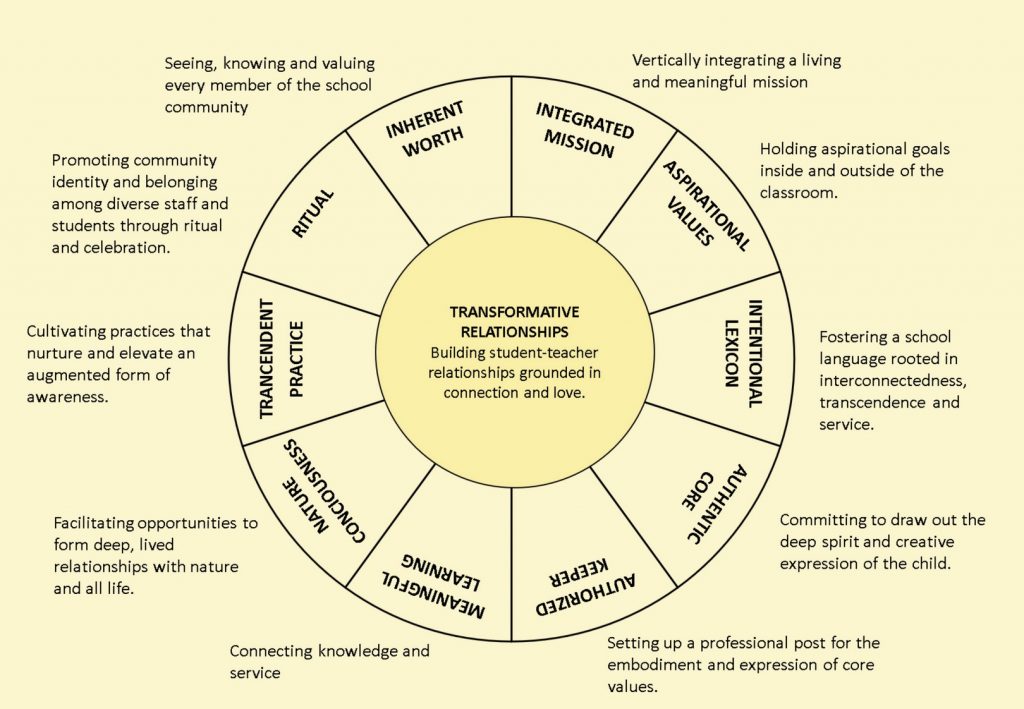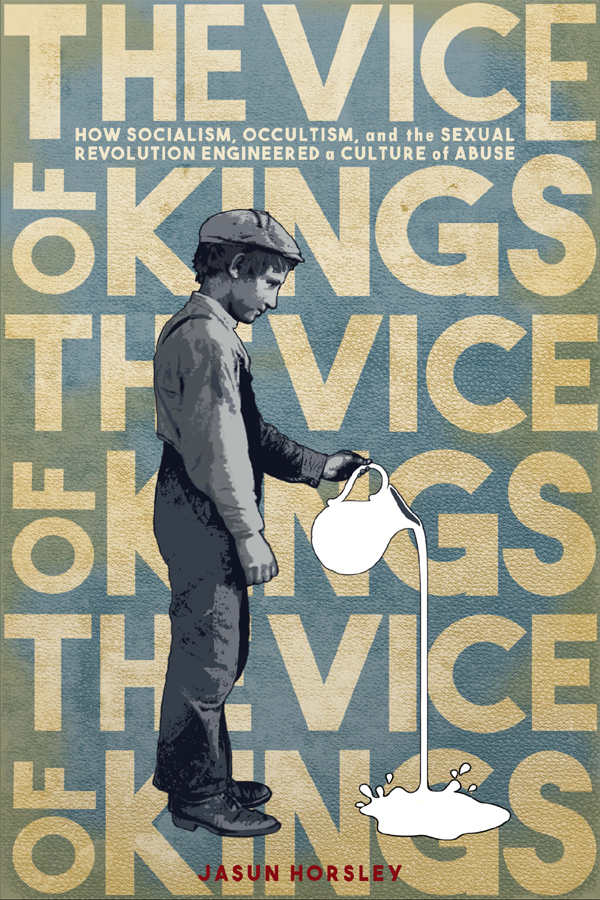In conjunction with “Social Emotional Learning” (SEL), the spiritual education agenda is called the “Collaborative for Spirituality in Education” (CSE). It was established by Steven C. Rockefeller, Sr. to promote the spiritual and moral development of young people in and through the U.S., that is incorporated into PreK-12 independent and public schools to “provide a foundation for a young person’s intellectual, emotional, moral, social, and physical development.” They have a National Council on Spirituality in Education and the Awakened Schools Institute which launched in October 2021 that is free to all participants and has a goal of bringing an “awakened school culture” into public and under-resourced schools. Their programs INCLUDE social emotional learning. It is all part and parcel to the obedience training and brainwashing.
The founders of CSE are Dr. Lisa Miller, Professor of Psychology and Education at Teachers College, Columbia University, where CSE’s research and teaching hub reside, the Rockefeller Philanthropy Advisors, and the Fetzer Institute.
This is a 9-part series on the psychological agenda of obedience training being systematically unleashed on the entire population PreK-Adult in a lifelong learning journey, to move everyone into a one-mind, one belief system, and develop a global citizenship with a digital citizen workforce operating under tyranny for their fourth industrial revolution – and billions are pouring into it, with advancements already in 110 countries.
READ:
Part 1: Introduction
Part 2: The Programming
The Creators of The Collaborative on Spirituality in Education (CSE), What It’s Really About, and How They Are Working to Integrate it with SEL
“The CSE is planting the seeds of social change and nurturing spiritually aware citizens and leaders for a new generation.”
In 2019 they held a conference on “Whole Childhood Education: The Spiritual Core of the Whole Child” where co-founder Tim Shriver of CASEL was a keynote speaker addressing the deepening of education with greater inclusion in community, and Steven Rockefeller Sr. was a keynote speaker on the critical importance of spiritual education for a democratic society. The goal of the conferences was to “launch an inclusive, coordinated movement of the many disparate programs that have been working within schools to nurture the spiritual core of students, using different language and different techniques.”
“In the past 20 years there has been a growing national understanding that success and well-being require a ‘whole child‘ approach to education. Social emotional learning, mindfulness, character education, values education, restorative practices, and other related programs seek to address the needs of children in a more holistic way. While much progress is happening through these programs, many leaders and educators are looking at how this work can be deepened and intensified.” – Karen Barth, Executive Director of CSE
In Rockefeller’s speech, he used the political divide, untrusting citizens in government and institutions, the so-called pandemic, and of course “science,” as the need to usher in this new spirituality in education. “Wholistic education, including spiritual development, is needed in our schools to support and nurture attitudes, values and beliefs that are at the heart of the American democratic ideal and way of life,” said Rockefeller.
Their annual conferences have been running since 2015, and in 2020, Timothy Shriver of CASEL was again a keynote speaker. President and co-founder of CSE, Lisa Miller, says that “the spirituality in education movement is about infusing a school’s culture with spiritual principles that inform the way students and educators relate to and treat one another,” which she refers to as the “unspoken curriculum.”
Miller often cites philosopher John Dewey, who was a chief architect of Teachers College’s educational philosophy. Coincidentally, in 1895, Dewey joined the Rockefeller-endowed University of Chicago as head of the combined departments of philosophy, psychology, and pedagogy (teaching), and established a laboratory where he could apply psychological principles and experimental techniques to the study of learning. In 1896 the laboratory opened as the Dewey School, and later became known as the University of Chicago Laboratory School. CASEL’s roots are in Chicago. Alex Newman of the Epoch Times has covered Dewey’s influence here and here, in two separate articles. Dewey was inspired by the Soviet educational system, is known as the father of America’s “progressive” education system, and “was a co-author of the Humanist Manifesto, a religious document rejecting God and prescribing collectivism as the cure for society’s ills.”
CSE promotes spiritual and moral development within schools and assist educators with building classrooms around this agenda, and are building a movement through conferences, social media, and outreach. In 2020 they began bringing K-12 school teams of educators in for one-year intensive training programs in leading a spiritually supportive school culture.
In partnership with the Spirituality Mind Body Institute at Teachers College, Columbia University, they are also hosting the “Awakened Campus Summit” in April 2022, to support emerging adults through wellness programs.
CSE’s Model

Their “11 Drivers of Awakened School Culture” include ritual, an authorized keeper, and “cultivating practices that nurture and elevate an augmented form of awareness through trancendent practice.” They are spelling it “TRANCEndent” rather than “transcendent.” They themselves wrote an article about it in the International Journal of Children’s Spirituality, and in the forthcoming second edition of The Oxford Handbook of Psychology and Spirituality.
Ritual
Promoting community identity and belonging among diverse staff and students through ritual and celebration.
Inherent Worth
Seeing, knowing and valuing every member of the school community.
Integrated Mission
Vertically integrating a living and meaningful mission.
Aspirational Values
Holding aspirational goals inside and outside of the classroom.
Intentional Lexicon
Fostering a school language rooted in interconnectedness, transcendence and service.
Authentic Core
Committing to draw out the deep spirit and creative expression of the child.
Authorized Keeper
Setting up a professional post for the embodiment and expression of core values.
Meaningful Learning
Connecting knowledge and service.
Nature Consciousness
Facilitating opportunities to form deep, lived relationships with nature and all life.
Trancendent Practice
Cultivating practices that nurture and elevate an augmented form of awareness.
Between Lisa Miller of Teachers College with John Dewey’s influence, Steven C. Rockefeller, and John E. Fetzer’s fascination with occultist Alice Bailey who founded the Lucifer Publishing Company (later changing it to Lucis Publising Co), it’s no surprise to see the language and “11 Drivers” carefully constructed in the wheel above, as their core teaching goals.
The Fetzer Institute funds numerous organizations, universities, and spiritual groups to advocate for a more spiritual world, while seemingly melding religions into oblivion and seeking to influence politics as well. They have shelled out millions in studies on spirituality and religion in America and partnered with hundreds of organizations to bring their “spirituality” into American culture, schools, businesses, and homes. For an institute that declares itself to be so spiritual and acceptant of all religions, why then have they spent millions of dollars annually to force their belief system and agenda into every home across America? Much like the Gates Foundation, they have funded ample research projects, worked with policymakers, and inserted themselves into unwanted places so as to advance their agenda.
The Fetzer Institute has funded many projects, but CASEL plays an important role for them because they can piggyback their agenda through the front door of schools via the SEL program.
They funded CASEL $50,000 in 2019 for an SEL Exchange event with 4,000 participants.
In October 2020, they funded CASEL $25,000 for a one-day Virtual Summit to convene global SEL advocates in a call to action.
In 2021, Fetzer granted Greenberg Consulting $15,000 to “assist the Institute in planning, developing, and advising the Institute’s Education strategy as well as the strategic planning process of the Collaborative for Academic, Social, and Emotional Learning (CASEL).”
Coming at this from all angles, they’ve also funded the following projects:
In 2017, they funded the Rockefeller Philanthropy Advisors over $1.2 million to harvest successful practices from 12 identified schools currently offering spiritual development programs, curriculum, and teacher training, as well as school culture guidelines, and parent and community orientation. In 2018, they funded them $250,000 for a two-year hire of the fundraising deputy for development to assist with grant writing, donor materials, and outreach for spiritual development of children and youth.
In 2018 they gave a $1 million grant to Millennium for a three-year co-creative process to create a large scale training program addressing teacher stress and building an environment for spiritual, whole-student development.
Also in 2020, they funded the Wisdom Thinkers Network $88,000 for a 15-month research project that is taking place in two K-5 public schools in two districts in upstate New York, “where wisdom stories have been deeply embedded in curricula that aims to promote and facilitate social, emotional, and spiritual development and character education of students.” Were the parents ever informed of this “research project” happening to their children?
In 2021, they funded Baylor University $2 million to run a first of its kind longitudinal global study to measure the well-being and health, religion and spirituality, and social, demographic, economic, political, and psychological data set of variables, so as to establish how different aspects of religion and spirituality affect flourishing in different cultural contexts around the world. The budget is expected to reach $42 million. The GFS will include 300,000 participants from 22 diverse countries.
This is where it takes an interesting twist. They funded an entirely new field of science called “Neurophilosophy of Free Will.”
Neurophilosphy of Free Will

In March, 2019 Chapman University’s new “Brain Institute” received $1.55 million from the Fetzer Institute, $5.34 million from the John Templeton Foundation, and $150,000 from the Fetzer Memorial Trust for the creation of an entirely new field of study called “Neurophilosophy of Free Will.” You heard that correctly. Whereas the Chapman Brain Institute is serving as the central hub, the grant actually supports 17 other universities for research efforts on this as well, which include: Charité (Germany), Dartmouth, Duke, Florida State University, Harvard, Indiana University Bloomington, NIH, Monash University (Australia), NYU, Sigtuna (Sweden), Tel Aviv University (Israel), University College London (UK), University of Edinburgh (UK), UCLA, and Yale.
The project launched on March 14, 2019 and began with a four-year collaboration among eight neuroscientists and nine philosophers from around the world. Some of the questions they are seeking to answer are: Do we have free will? Are we, in fact, free to do what we wish? What is the role of consciousness in our decisions? They plan to use advanced analysis techniques of brain activity to decode actions and decisions before they take place, and will also compare human brain activity when people make arbitrary decisions versus deliberate ones.
On their official website, they state that neuroscientific work has been casting doubt on whether consciousness is part of the causal chain leading to action. In trying to determine how the brain enables causal, conscious control of human decisions and actions, they are testing:
1) Whether human intentions are causally efficacious for our decisions and behavior.
2) What is the specific role of consciousness when intentions guide behavior.
3) What, if any, is the difference between conscious control in deliberate versus arbitrary decisions.
Apparently this grant came after the announcement of Chapman University being elevated to Carnegie Classification R2 which signifies high research activity. The Brain Institute operates out of Rinker Health Science Campus in Irvine and the Orange campus, where researchers investigate cognitive neuroscience of altered planes of consciousness, neuropsychology, and higher brain functions, drawing from clinical populations, volunteers, artificial intelligence, machine learning, and big data.
The project on free will is entitled: “Consciousness and Free Will: A Joint Neuroscientific-Philosophical Investigation.”
One’s imagination could dream up about seven different ways this could all go, but given the list of those involved, it’s likely to only go one way. Time will tell.
What comes to mind when reading this is that one of the key elements they teach through SEL is “decision-making,” beginning in preschool.
The “mind” investments don’t stop there with the Fetzer Institute, and other donors throughout this report.
Center for Healthy Minds University of Wisconsin-Madison

“Disseminating practices to cultivate well-being and measuring their impact with mobile technology will become an increasingly important modality to address the global crisis in well-being that we are now facing.” – Richard Davidson, founder Healthy Minds Innovations
The Fetzer Institute funds the Center for Healthy Minds and Healthy Minds Innovations on various research projects relating to the mind. The Chan Zuckerberg Initiative, NIH, NCCIH, and NIMH (who also funds CASEL), have all been funding the research and development of apps that train brains for “well-being.”
According to the Center’s website, founder “Dr. Richard Davidson is best known for his groundbreaking work studying emotion and the brain. A friend and confidante of the Dalai Lama, he is a highly sought-after expert and speaker, leading conversations on well-being on international stages such as the World Economic Forum, where he serves on the Global Council on Mental Health.” In 2010, the Dalai Lama gifted $50,000 to the center from his personal trust.
Davidson and his team published a study on August 28, 2020 on ‘Testing the Efficacy of a Multicomponent, Self-Guided, Smartphone-Based Meditation App: Three-Armed Randomized Controlled Trial. The objective was to evaluate the efficacy of two versions of the Healthy Minds Program (HMP) app which includes training in mindfulness (awareness), along with practices designed to cultivate positive relationships or insight into the nature of the self (insight). The focus is on awareness, connection, insight, and purpose. They concluded that the study provided evidence of efficacy for the HMP app in reducing distress and improving outcomes related to well-being, including social connectedness. The program app itself was created by Health Minds Innovations, an external nonprofit that is affiliated with the Center for Healthy Minds at UW-Madison.
A Healthy Minds article about the study states, “With widespread access to smartphones, experts are hoping to provide more accessible options that are well-studied and effective to stave off symptoms of depression and anxiety, which are on the rise and a growing public health crisis.”
This work was supported by the National Center for Complementary and Integrative Health (Grant K23AT010879), the National Institute of Mental Health (Grant R01MH43454) (they also fund CASEL), and by the Clinical and Translational Science Award program through the NIH National Center for Advancing Translational Sciences (Grant UL1TR002373). The NIH grant alone exceeded $31 million over the course of five years.
The Healthy Minds Program App is already available to the public for free because “they are powered by science, and funded by donation.”
What they don’t mention in this particular article, but do in a separate announcement, is that the Chan Zuckerberg Initiative Donor Advised Fund, and advised fund of the Silicon Valley Community Foundation, kicked in $5 million in 2018. They refer to it as a research project partnership between Health Minds Innovations and the Center for Healthy Minds UW-Madison, “to measure emotional well-being in teens and develop strategies to promote flourishing in this age group….through the development of easy-to-use, mobile measures for adolescents.” They deem this as “interventions” to improve people’s lives for their own well-being, with a focus on the “whole child,” while they monitor, measure, and train the mind.
The Fetzer Institute has funded at least nine research projects with the Center for Healthy Minds, and according to their 2019 tax return, they donated $21,654 to Healthy Minds Innovations. Coincidentally, Tony Chambers, the director of equity, inclusion and innovation at the Center for Healthy Minds, was the founder of the fellows and senior scholars program and previously served as a program officer at the Fetzer Institute.
Beginning in March, 2017, the Lisa and John Pritzker Family Fund donated $300,000 to the Center for Healthy Minds over the course of three years to advance its research on cultivating well-being and relieve suffering. “I hope this synergy will be field-changing, and help mindfulness, compassion, and well-being be an important part of our health, education and employment systems,” said Stone Pritzker.
Of course, the Gates Foundation was already funding the Center $1.39 million back in 2012 for educational games to train 8th graders in social and emotional skills, including empathy, cooperation, mental focus and self-regulation. In 2019, Gates funded research by the Center and University of California to design a video game to improve mindfulness in middle schoolers. The game, called Tenacity, focuses on counting breaths to be present in the moment.
They frame it as leading players through relaxing landscapes such as ancient Greek ruins and outer space, but it looks more like the doorway to Jeffrey Epstein’s child trafficking residence on Little Saint James Island, with a twist of M.C. Esher’s work.

“We want to actually change the cognitive or emotional processes – how people think or process information they’re trying to learn.” – Elena Patsenko, Research Scientist at the Center for Healthy Minds
Conclusion
In March, 2016, the World Economic Forum called for “social and emotional learning” to be integrated into Ed-Tech to increase the level of SEL a child or adult would receive and bring it to a virtual and augmented reality. (More on this in part 4). According to WEF’s research, private investment in Ed-tech increased from $1.5 billion in 2011 to $4.5 billion in 2015. According to the research firm the Learning Counsel, K-12 districts in the U.S. alone spent $35.8 billion in 2020 on hardware, software, curriculum resources, and networks. Grand View Research consulting firm has projected that the Ed-tech market will reach $285.2 billion by 2027, and that it had already reached $76.4 billion in 2019.
While the billionaire philanthropists investing in a virtual and augmented dystopian future are trying to hijack everyone’s consciousness, Facebook’s new VR “Metaverse” is already seeing its first “virtual groping” in a virtual reality world. The alleged victim was a beta tester on “Horizon Worlds” VR platform, stating that the “VR adds another layer that makes the event more intense.” During her interactions with others in this “virtual world,” another avatar (beta tester) began groping her while others watched in support. She wrote about it in the official Horizon Group on Facebook, and they investigated the situation, assessing that the woman failed to hit the “blue shield button” to take her to the “safe zone” where she could escape and they were going to work on making this easier for people to locate in the future.
This may sound like a bizarre scenario right now, but fast forward to when young children are all hooked into VRs in school or at home, and their minds and all of their senses are being infiltrated by programs developed by eugenicists, occultists, and scientists wanting to experiment on their minds. This is a dangerous path for both children and adults. For those parents who have always fought against some of the more damaging games for children, now is your time to shine and bring awareness to this.
They are trying to establish governance over our consciousness – don’t let them.
This report was sponsored by The Solari Report.
ALERT: 2030 Psychological Agenda – Part 1: Introduction
ALERT: 2030 Psychological Agenda – Obedience Training for PreK-Adults Already Global with Billions in Funding for Full Control – Part 2: Programming
/Coming Soon:
Part 4: World Economic Forum White Papers on the Future of The Global Education System (family obedience training)
Part 5: The U.S. Department of Education, HHS, CDC, and Others Implementing This Global Agenda
Part 6: Huge Private Sector Funding Toward Obedience Training and SEL Agenda
Part 7: Billions in State & Federal Funding, and Legislation
Part 8: Measurements, Data Collection, Monitoring, and Social Score For All
Part 9: Timeline, Recap List of Over 300 Organizations Involved, and Conclusion









Everyone asks where did this madness originate? As you taught us “follow the money” and sure enough it leads to the roots of a rotten tree with the usual oligarchs. Excellent report. I assume most parents were, are unaware of this. Public school is not safe, critical parents guide their children’s spirituality, religion and values since this programming is ubiquitous. Thank you.
Have to home school. The schools are/will become inhuman if this continues.